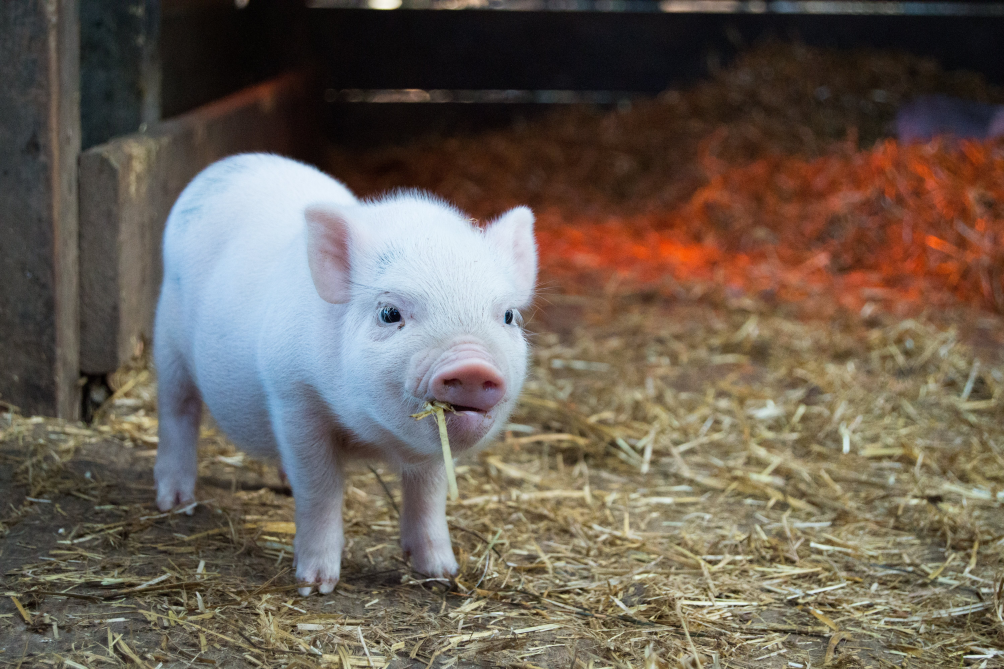February 2022

The Pig-Hearted Man
Welcome back Aggies! We walk into a new year, a new semester, and what we hope are positive changes in our lives. For Mr. David Bennett, this year has meant a new lease on life. As it stands currently, 17 individuals on the organ transplant list die each day because of a lack of viable organ donations. For obvious reasons, extra organs are hard to come by. But using animal organs… could it be possible?
Mr. Bennett needed a heart transplant, but he couldn’t make it onto the organ recipient list— for human organs. On January 10, 2022, Mr. Bennett made history as he had a pig heart transplanted into his chest. He made history again when his body didn’t reject it. This sounds like a story pulled from a Grey’s Anatomy script, but for Mr. Bennett and his family, it's a new life.
The idea of a pig organ transplantation into a human body is kind of shocking. We view our hearts in a rather mythological way: the centerpiece of human emotion, love, and motivation—“listen to your heart” and all that. Since 1965, surgeons have been using heart valves from cows and pigs to replace faulty human valves in an attempt to increase longevity. Xenotransplantation- the transplantation of tissues from one species to another-takes it a step further. The purpose of the immune system is to keep “non-self”, foreign objects out of the body, so scientists developing animals who have organs that can be transplanted into humans have had to make several genetic modifications to make the surgery viable. Revivicor developed and contributed the pigs which are compatible for xenotransplantation. Revivicor made 10 genetic alterations in three major categories: one modification ensures that the pigs heart cells aren’t producing the sugars that would induce an immune response from human antibodies, a second attempts to mitigate inflammation and blood vessel damage, while a third knocks out genes that would cause the pig heart to grow too large for a human chest cavity. While experiments have previously been undertaken in which a pig heart was successfully transplanted into a baboon, immune responses differ from species to species. If the field of xenotransplantation is to move forward, human risk must be involved.
In October 2021, a medical group out of the N.Y.U. Langone Transplant Institute successfully transplanted a kidney from a genetically altered pig onto a brain-dead human, whose family gave consent. There was no immediate immune response from the host body and the kidney began to function, though the experiment was monitored only over 54 hours. While the long-term effects of such a transplantation have yet to be observed, the kidney began producing urine and creatinine almost immediately, very similar to transplants from living, human donors. In this transplantation, the kidney remained outside of the recipient’s body. Success here has quickly multiplied, with the advent of a clinical-grade transplantation of two genetically-altered pig kidneys into a brain-dead donor body this January at the University of Alabama. The kidneys functioned beautifully; this time scientists monitored function and immune response for 77 hours (over three days) and still saw positive results.
There are, of course, many considerations that go into xenotransplantation surgeries. Firstly, though the pig underwent genetic alterations, Mr. Bennet, and future recipients, will still need to take immunosuppressant drugs. These drugs are ever-evolving and constant efforts are being made to make them better and more effective. In fact, the immunosuppressant prescribed to Mr. Bennett is experimental. On an interesting note, the pig’s heart needed to be washed in a nutrient bath between harvesting and transplantation. This bath included water, hormones, and unexpectedly, cocaine. It’s still unclear why this is necessary but seems to be instrumental in maintaining heart viability.
Finally, it’s important to recognize that while the surgeons got one-time approval from the FDA for this heart xenotransplantation, surgeons and scientists still have plenty of hurdles to overcome before this type of transplantation becomes readily available or routine. However, there is hope that more people in need will be able to gain access to viable organs without needing to wait for a perfect human match. With these advancements just being made in the past six months, it’s exciting to consider what the rest of 2022 will offer.